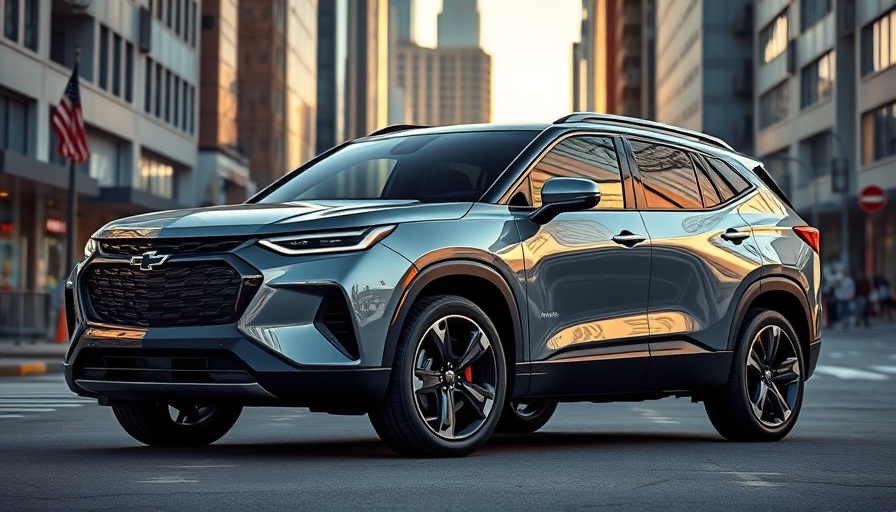
Chevy Blazer EV: A Shift in Electric Vehicle Strategy
The automotive landscape is undergoing tremendous change, particularly with electric vehicles (EVs) leading the charge. Recently, Chevrolet made the surprising announcement that they are discontinuing the rear-drive version of the highly anticipated Blazer EV. This decision may seem puzzling at first glance but reflects a much larger trend in the electric vehicle market—a shift towards more versatile and performance-oriented models.
Why the Rear-Drive Blazer EV?
Originally, the rear-drive Blazer EV was positioned as a sporty, stylish option for consumers looking to transition from traditional gas-powered vehicles to electric alternatives. Chevy planned to lure in buyers with a distinct, high-performing vehicle that blended power and efficiency. However, with the increasing consumer demand for all-wheel drive and SUV capabilities, Chevy’s choice to sideline rear-drive models is a fundamental acknowledgment of shifting market preferences.
Market Trends in Electric Vehicles
Sales data from recent years show consumers favoring all-wheel-drive options, especially in the SUV sector. For example, several prominent manufacturers like Ford and Tesla have rapidly expanded their EV lineups, focusing on models equipped with all-wheel drive. This strategy resonates particularly well in regions where inclement weather conditions prevail, making all-wheel drive a more practical choice.
Impact on Chevrolet's Reputation and Strategy
Chevrolet's decision may influence how consumers perceive the brand’s commitment to innovation in the electric space. There is a sense of urgency for manufacturers to produce EVs that not only attract attention but also stand up to competitor offerings. By pivoting away from less popular configurations like the rear-drive model, Chevy signals to the market that it is ready to adapt and align its product offerings with real consumer desires.
Challenges in the EV Market
Chevy's cancellation raises questions about the broader challenges facing the EV industry. Supply chain disruptions, fluctuating battery material costs, and regulatory hurdles all pose significant obstacles for automakers. Furthermore, as manufacturers scramble to produce enough vehicles, competition becomes fierce, resulting in the need for brands to hone their focus on what consumers truly want.
Looking Ahead: Future Trends and Innovations
As the automotive community anticipates further changes, the focus is shifting towards more efficient and robust designs. Innovations like improved charging infrastructure and battery technology are paramount for future models. Moreover, manufacturers incorporating sustainable materials into their designs can elevate the consumer experience, leading to a wider acceptance of electric vehicles.
Conclusion: The Road Ahead for Chevy and the Blazer EV
The cancellation of the rear-drive Blazer EV is just one chapter in Chevrolet's evolving narrative within the automotive world. As the company looks to streamline its efforts and deliver models that meet current consumer demands, it may soon rebound with revamped options offering all-wheel drive capabilities and enhanced performance. In a rapidly changing landscape, only time will tell how Chevy’s adaptations will affect its vision and market position moving forward.
 Add Row
Add Row  Add
Add 




Write A Comment